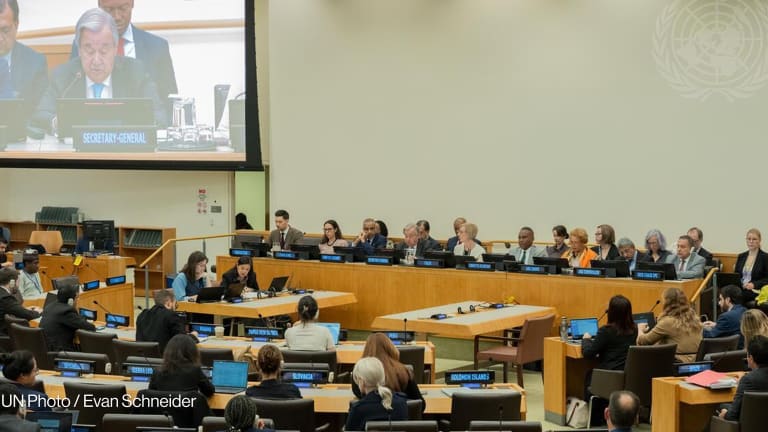The U.S. needs to improve mechanisms to ensure that funds designated for foreign assistance do not end up in the hands of terrorists, according to a new Government Accountability Office report.
GAO found that the $575 million given to Palestinians, primarily through the United Nations Relief and Works Agency for Palestine Refugees in the Near East, ends up in the right hands at the primary level, or in the initial awards. However, GAO found that subawards, or money given by the initial winners to subcontractors, often do not have the proper mechanism to ensure that the money is kept away from groups with terrorist ties.
"An estimated 17 percent of subawards had insufficient evidence to assess compliance related to mandatory clauses" put in place to ensure money is given to proper organizations. "GAO also found limitations in the agency's monitoring of subawards for inclusion of mandatory clauses."
Despite these lapses, GAO commended the U.S. Agency for International Development for adding measures that have allowed for better oversight of U.S. money given to the Palestinians. The government watchdog recommended implementation of these measures in 2006.
The report also found that UNRWA was mainly to blame for most of the instances where money reached groups with ties to terrorism.
"UNRWA said it has screened all staff, contractor, and beneficiary names against a UN Security Council list of potential terrorists and found no matches," the report said. "However, the list does not include Hamas and Hezbollah, which the United States has designated as foreign terrorist organizations."
Meanwhile, Rep. Chris Berman, D-Calif., introduced legislation that authorizes the State Department to hire 1,500 new foreign service officers, including 700 officers for USAID. It also requires State to improve training and recruitment practices, as well as review policies and programs to ensure USAID is working to achieve the Obama administration's foreign policy objectives.
This is the second bill focusing on foreign aid reform introduced by Berman. The first, introduced late last month, requires the U.S. to define a foreign assistance strategy.








